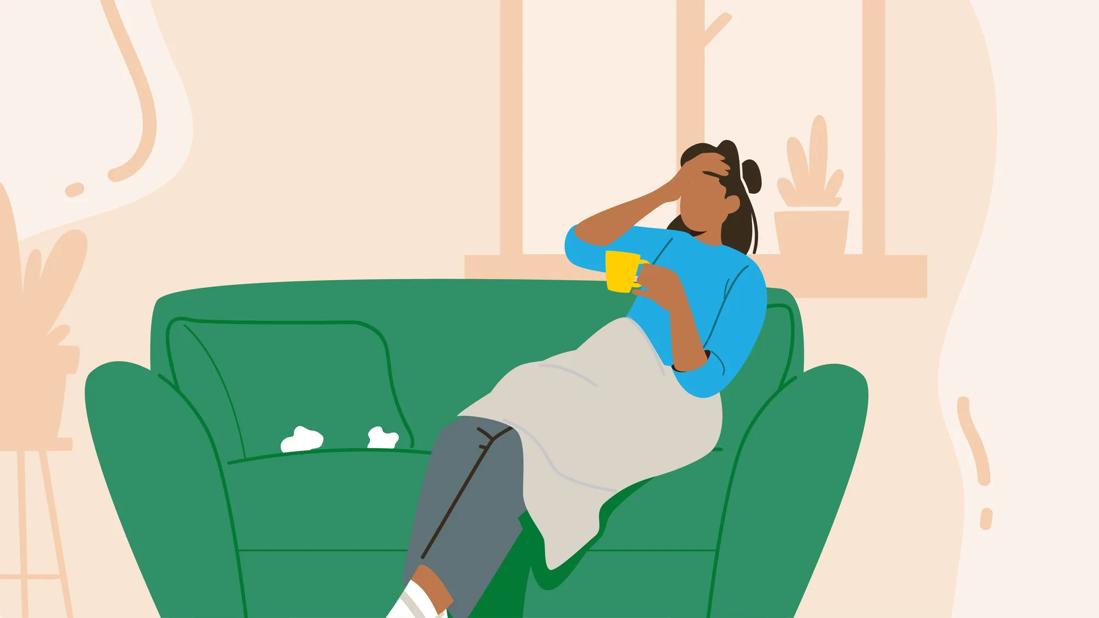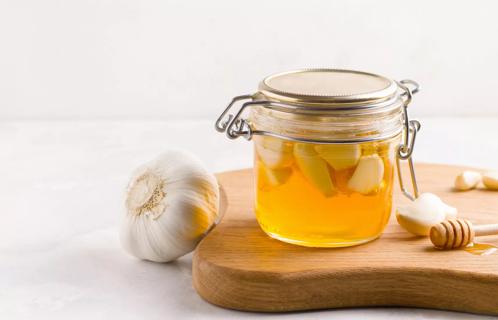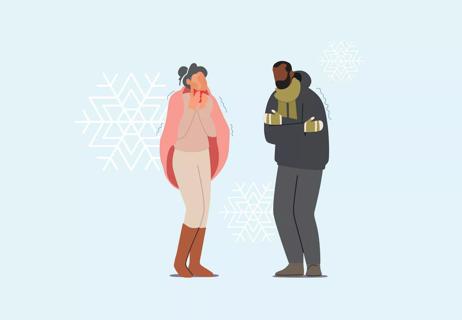Don’t expect miracles out of ‘immune-boosting’ supplements when you’re sick

You’re sick and hoping to find immediate relief from your cold. Zinc and vitamin C “immune boosters” claim some enticing feel-good promises. But can they really stop the sniffles and sneezing?
Advertisement
Cleveland Clinic is a non-profit academic medical center. Advertising on our site helps support our mission. We do not endorse non-Cleveland Clinic products or services. Policy
Let’s find out what the science says from family medicine physician Shaina Rood, DO.
While it doesn’t appear that taking zinc can prevent a cold, studies show the nutrient may help shorten the duration of cold symptoms by a few days.
But that hint of relief comes at a cost. A review of research shows that unpleasant side effects such as nausea, diarrhea and a bad or metallic taste in your mouth are somewhat common among people who take zinc for colds.
So, are the downsides of taking zinc worth a slightly shorter cold? It’s very much a lesser-of-two-evils situation.
Bottom line? “Zinc is not recommended,” states Dr. Rood.
There’s no question that vitamin C is an important nutrient and a critical ally for your immune system. But the nutrient isn’t magical, cautions Dr. Rood. Studies evaluating the effectiveness of vitamin C supplements show that they won’t ward off illness.
But when it comes to recovering from a cold, some extra vitamin C may help a wee bit. Researchers found that daily vitamin C doses may help reduce the severity and duration of bad colds.
“You may feel better about 13 hours sooner during a typical seven-day illness,” clarifies Dr. Rood. (In other words, don’t expect to stir a pack of vitamin C powder into a glass of water one night and then be ready to go for a big event the next day.)
Advertisement
While some vitamin C is good for your health, it’s important not to overdo it.
The “tolerable upper intake level” for vitamin C ranges from 400 milligrams (mg) to 2,000 mg per day, according to the U.S. National Institutes of Health (NIH). Be warned, though: Those sorts of high doses can lead to GI issues like abdominal cramps, diarrhea and nausea.
To combat colds, most studies focused on taking daily supplements with 200 mg of vitamin C.
Nutritionally, the NIH recommends that men consume at least 90 mg of vitamin C per day to avoid deficiencies. For women, the target is 75 mg, with higher amounts during pregnancy (85 mg) and while breastfeeding (120 mg).
To give you an idea of what those numbers mean, one small orange contains about 51 mg of vitamin C. An 8-ounce cup of OJ comes in at almost 84 mg.
Vitamin C and zinc are just two of many natural remedies touted as cures for the common cold. Some claim elderberry can help. (Not exactly accurate.) Others suggest putting garlic up your nose. (Nope!) There’s been a push for fire cider and echinacea flower, too. (Both unproven.)
So, why do folks sometimes think they feel better after trying one of these tactics? The answer might revolve around the placebo effect, where you essentially trick yourself into believing something worked.
Or the cold simply runs its course, but you connect its disappearance to whatever you took.
When you really get down to it, Mom’s Chicken Soup, a few cups of soothing tea and taking it easy for a few days might be the ideal prescription to bring you relief.
“When you’re sick, the best medicine still seems to be time, fluids and rest,” says Dr. Rood.
Reach out to a healthcare provider if symptoms continue or get worse over a week.
Advertisement

Sign up for our Health Essentials emails for expert guidance on nutrition, fitness, sleep, skin care and more.
Learn more about our editorial process.
Advertisement

They’re viral cousins, but enteroviruses are more likely to cause serious illness

You can’t cure a cold, but these simple home remedies can help you feel better faster

Sinus infections tend to last longer and include symptoms like facial pressure and discolored mucus

Enteroviruses are often to blame for summer colds, leading to a runny nose, sore throat and digestive symptoms

Stress and unhealthy habits can lead to more colds, but taking some precautions may help you stay well

On their own, honey can help soothe a sore throat and garlic has immunity-boosting properties, but you don’t need to go the fermented route

Symptoms can overlap and be hard to distinguish, but there are some telltale differences

The flu, RSV, COVID-19, pneumonia and more typically circulate during cold weather months

Even small moments of time outdoors can help reduce stress, boost mood and restore a sense of calm

A correct prescription helps your eyes see clearly — but as natural changes occur, you may need stronger or different eyeglasses

Both are medical emergencies, but they are very distinct events with different causes